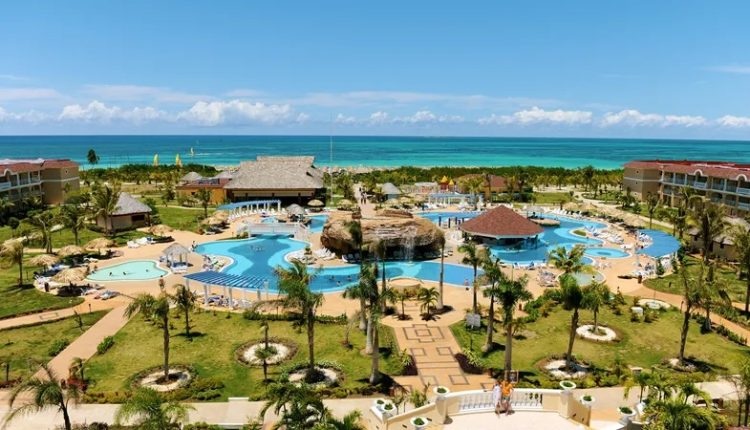By Rodrigo Pérez
MIAMI, USA | 27 October 2025 (IDN) — In an unexpected step for one of the world’s most tightly managed economies, Cuba has approved a new policy that allows international hotel chains to lease — not merely operate — state-owned hotels. The move marks a historic departure from decades of rigid central control and reflects Havana’s growing urgency to revive its battered tourism industry.
The change comes amid one of the island’s toughest economic periods in recent history. Inflation, fuel shortages, and dwindling foreign reserves have pushed the government to take unprecedented measures. Tourism, alongside remittances and medical services, remains a lifeline for the Cuban economy — yet the sector has struggled to recover from the pandemic’s devastating impact.
According to TourismReview News, the first property to operate under the new leasing model will be the Iberostar Origin Laguna Azul in Varadero, Cuba’s most famous beach resort. Starting 1 January 2026, Spanish hotel giant Iberostar will not only manage but also rent and run the hotel directly — a first in Cuba’s modern history and a potential blueprint for broader foreign investment in the country’s tourism infrastructure.
A Strategic Gamble for a Troubled Economy
The reform represents a bold test of economic flexibility within Cuba’s socialist framework. For decades, foreign hotel operators could only collaborate with state agencies — primarily GAESA, the powerful military-run conglomerate — under strict rules that dictated everything from staffing to menu design. Salaries were paid in local currency, eroded by inflation, and nearly every operational decision required government approval.
Under the new system, foreign hotel chains will enjoy unprecedented operational independence. Prime Minister Manuel Marrero, a former tourism minister who introduced the plan, said the government will continue to own the assets but allow lessees to make key business decisions — including hiring, paying wages in hard currency, and setting service standards.
Officials hope the reform will improve service quality, raise visitor satisfaction, and help Cuba regain its competitive footing in the Caribbean market.
“This modernization provides the planning certainty and market-driven flexibility that we have long been seeking,” a representative for one participating hotel group told EFE, Spain’s national news agency.
As one European observer put it: “Cuba is not abandoning socialism — it’s learning how to adapt it.”
Testing a New Model
The leasing system will initially operate as a pilot program, with each contract negotiated individually — reflecting Havana’s cautious, case-by-case approach to reform. The early results in Varadero will likely determine whether the policy expands to other tourist hubs, including Havana, Cayo Coco, and Holguín.
Reports also suggest ongoing talks with Chinese investors to lease the Copacabana complex in Havana, indicating that Cuba is casting a wider net for foreign partnerships. Yet, details such as lease terms, profit-sharing arrangements, and currency payments remain undisclosed.
Analysts note that this experiment is a balancing act: the government seeks to attract hard currency and improve services while retaining political and ideological control.
Tourism’s Long Road to Recovery
Cuba’s tourism sector — once among the Caribbean’s strongest — has been painfully slow to rebound. The country hosted 4.7 million visitors in 2018, but that number collapsed during the pandemic and remains far below pre-COVID levels. Forecasts for 2025 project only 1.8 million arrivals, a decline even from 2024 figures.
Experts say that the slow recovery reflects more than just global travel trends. Chronic power outages, aging infrastructure, and U.S. sanctions continue to deter visitors. Bureaucratic inefficiencies and the lack of a dynamic private sector have further stifled innovation in hospitality and services.
By allowing foreign hotel groups to lease properties, Cuba aims to inject professionalism and investment into its tourism landscape without dismantling its socialist foundation.
Skepticism and Opportunity
Still, not everyone is convinced the reforms will last. Cuba has a history of cautiously opening its economy — only to retreat when political concerns arise.
“The question isn’t whether the reforms can succeed — it’s whether they’ll be allowed to continue once they do,” one regional tourism expert told Progreso Weekly.
Competition in the Caribbean is fierce. Neighbouring destinations like Cancún and Punta Cana have rebounded strongly, offering modern infrastructure, reliable power, and fewer travel restrictions. Cuba, by contrast, must rebuild its reputation and regain travellers’ confidence in its service quality.
A Tentative Step Toward Change
Even so, the leasing policy signals a remarkable evolution in Cuba’s approach to economic management. It acknowledges, at least implicitly, that the state cannot revive the tourism sector alone.
If Iberostar’s Varadero venture succeeds, the model could inspire similar reforms in other industries, such as agriculture, retail, and transport — sectors long hampered by inefficiency and lack of foreign expertise.
For now, all eyes are on Varadero, where the pilot project represents both a business experiment and a symbol of cautious optimism.
As one European tourism expert noted, “Cuba is not abandoning socialism — it’s learning how to adapt it.” [IDN-InDepthNews]
Sources: TourismReview News; EFE (Spain); Cuban Ministry of Tourism statements; Progreso Weekly.
Image: Laguna Azul Resort in Varadero. Source: Progresso Weekly

